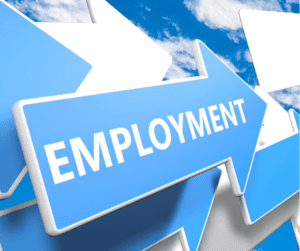How does employment affect the economy in overall?

Employment is a vital driver of economic growth. When people are employed, they have the financial means to spend on goods and services, boosting business growth and generating even more employment opportunities. In contrast, countries with low unemployment rates tend to be more economically stable and prosperous compared to those with high unemployment rates. Policymakers must prioritize job creation as a critical strategy for sustaining economic progress.
The Relationship Between Employment and Economic Growth
Numerous studies highlight the strong link between unemployment and economic performance. For instance, research by the European Commission reveals that a one-percentage-point increase in unemployment can lead to a 0.42 percentage point decline in GDP growth. Although the connection between employment and economic growth is multifaceted, several theories explain the impact of jobs on economic development.
One widely accepted theory is the Keynesian multiplier, which posits that employment drives spending on goods and services, prompting business expansion and further job creation. Another perspective, the human capital theory, suggests that investing in employees—through training and development—is as crucial as investing in equipment and infrastructure. For example, businesses often allocate substantial resources to maintain operational tools and systems; similarly, they should invest in enhancing their workforce’s skills and expertise.
Unemployment not only affects the economy but also has profound personal and societal impacts. Joblessness can lead to feelings of insignificance, low self-esteem, and reduced motivation, while also causing financial instability, mental health challenges, and social isolation. Therefore, employment is essential not only for economic growth but also for improving individuals’ well-being.
Employment as a Catalyst for Economic Confidence and Growth
One of the most significant benefits of employment is the financial security it provides, giving people the confidence to purchase goods and services. This consumer activity supports business growth and contributes to job creation. Additionally, employment enables individuals to save and invest in ventures such as starting a business or purchasing property, further stimulating economic expansion.
Jobs create a virtuous cycle of economic growth. Thriving businesses generate profits, pay taxes, and contribute to funding public services and infrastructure. This, in turn, makes a country more appealing to investors, driving further growth. Governments can also reinvest tax revenue into education and training, enhancing workforce productivity and opening up new job opportunities.
The Role of Policymakers in Job Creation
Given the undeniable importance of employment for economic stability and growth, policymakers should focus on job creation through measures such as infrastructure investments, business tax incentives, and improved access to finance. It is essential to create an environment where businesses can thrive, as a healthy business ecosystem is fundamental to generating jobs and fostering economic prosperity. However, individuals also have a role to play in contributing to the economy by enhancing their skills and improving their employability.
Improving Employability
Employability refers to the ability to secure and maintain a job by having the skills and experience employers seek. There are several ways individuals can boost their employability.
Taking on internships or work experience placements is an excellent way to acquire practical skills and industry-specific knowledge. Such opportunities also help build professional networks and increase awareness of potential job openings. Additionally, pursuing further education or training can make candidates more attractive to employers. For instance, obtaining certifications in trades such as plumbing or electrical work can significantly enhance employment prospects.
Staying informed about industry trends is another critical aspect of employability. Regularly updating skills to align with evolving market demands ensures that candidates remain relevant and competitive. In fields like digital marketing, where rapid changes occur, staying updated on the latest developments is crucial.
Finally, individuals should actively seek opportunities by networking, attending industry events, and applying for roles that may stretch their capabilities. Networking can lead to mentorship opportunities, where experienced professionals provide valuable guidance and support to help individuals achieve their career goals.
Conclusion
Employment is a cornerstone of economic growth, and the link between the two is undeniable. In a world marked by uncertainty, job security cannot be taken for granted. However, by investing in skill development, embracing opportunities, and staying proactive, individuals can reduce unemployment periods and continue contributing to the economy. Both policymakers and individuals play a crucial role in fostering a thriving economic landscape where employment drives prosperity for all.